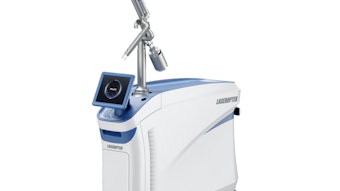Novan has announced that the last patient has been randomized in its two identically designed Phase 3 pivotal clinical trials to evaluate the efficacy and safety of topical nitric oxide-releasing product candidate SB204 gel for the treatment of acne vulgaris. More than 2,600 subjects have been enrolled ahead of schedule, and Novan expects to report top-line results in the first quarter of 2017.
The company’s Phase 3 program includes three studies:
- NI-AC301, a 12-week, double-blind, placebo-controlled, parallel-group study in subjects with moderate to severe acne across 55 sites in the U.S. Approximately 1,300 subjects, ages 9 and older, who satisfy the entry criteria have been randomized in a 1:1 ratio to two treatment arms, SB204 Gel 4% topically once daily or vehicle topically once daily. Primary endpoints include absolute changes in inflammatory and non-inflammatory lesion counts and proportion of subjects with Investigator Global Assessment (IGA) success at week 12. Secondary endpoints include percent changes in inflammatory and non-inflammatory lesion counts, time to reduction in inflammatory lesion count and time to improvement in IGA.
- NI-AC302, an identically designed parallel study to NI-AC301 with approximately 1,300 subjects, ages 9 and older.
- NI-AC303, a long-term safety study in eligible patients who have completed 12 weeks of treatment in the NI-AC301 or NI-AC302 trials. Novan enrolled the last of more than 600 patients for this study in July, with a maximum duration of 40 weeks, and expects to report top-line results in the third quarter of 2017.
“We are extremely pleased with the rapid enrollment of these Phase 3 trials for our lead product candidate,” said Nathan Stasko, PhD, president and CEO of Novan. “If approved, SB204 will be the first new chemical entity specifically developed for the treatment of acne in more than 20 years and, in our view, has the potential to redefine the standard of care for acne. We believe physicians and their patients deserve a new option for the treatment of this chronic inflammatory skin disease, and we are eager for the results of these trials.”











